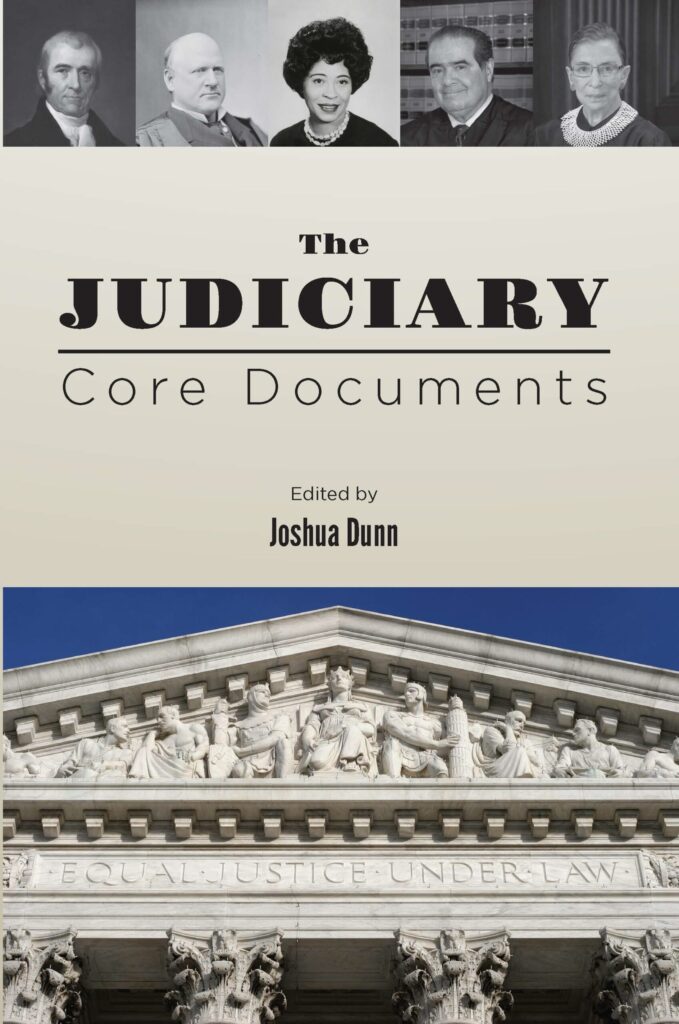
This collection of documents on the judiciary presents an array of views on the role that the courts should play in American life and how they should interpret the Constitution and our laws. Is the Supreme Court, for example, the final arbiter of what is constitutional, or do the legislative and executive branches have an equal voice? Should judges restrict themselves to interpreting the law according to the intent of those who wrote it, or must they not interpret that intent in changing circumstances? In addressing such questions, the collection completes a set of volumes on government institutions in Teaching American History’s Core Documents collection. The set also includes The American Presidency, Congress, and Political Parties. These volumes will be supported by a collection of documents on the separation of powers and another on federalism. Together these six volumes will provide a thorough documentary account of American government.
Documents Include:
- Brutus XV, March 20, 1788
- McCulloch v. Maryland, March 6, 1819
- President Andrew Jackson, Veto of the Bank Bill, July 10, 1832
- Senator Daniel Webster, Reply to Jackson’s Veto Message, July 11, 1832
- Plessy v. Ferguson, May 18, 1896
- West Virginia State Board of Education v. Barnette, June 14, 1943
- Justice Thurgood Marshall, “The Sword and the Robe,” May 8, 1981
- Judge Richard Posner, “What Am I? A Potted Plant? The Case against Strict Construction,” September 28, 1987
- Justice Antonin Scalia, “Originalism: The Lesser Evil,” September 16, 1988
- Justice Sandra Day O’Connor, “Portia’s Progress,” October 29, 1991
- Judge Sonia Sotomayor, “A Latina Judge’s Voice,” October 26, 2001
- Obergefell v. Hodges, June 26, 2015
- Adrian Vermeule, “Beyond Originalism,” March 31, 2020

